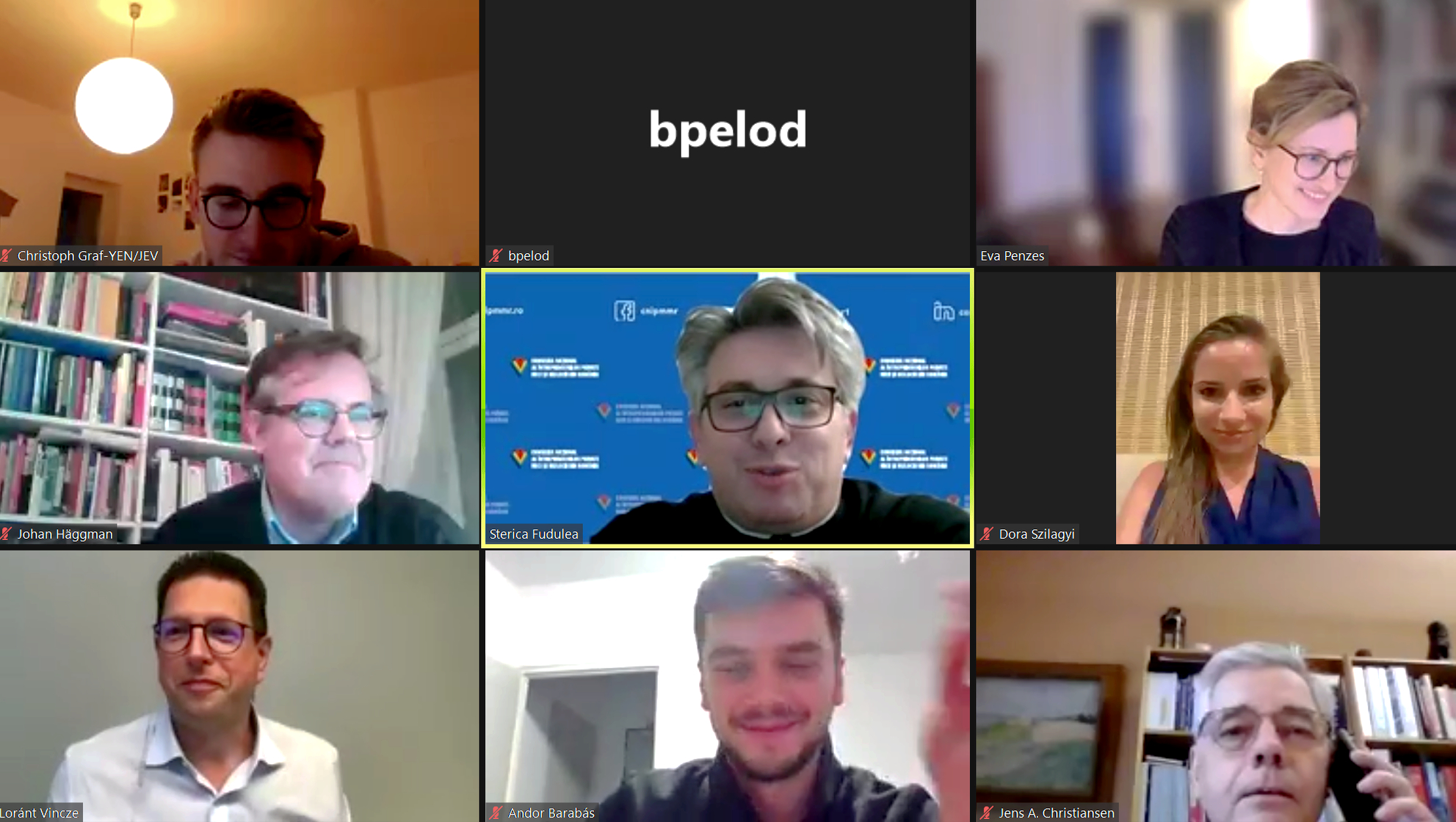
The European Dialogue Forum held its first meeting in 2022
13.01.2022FUEN’s European Dialogue Forum held an online meeting on Wednesday, 12 January 2022. At the meeting chaired by Jens A. Christiansen members of the FUEN body working on the political representation of the organisation discussed current developments regarding their communities.
Jens A. Christiansen mentioned the historical success of SSW in the Bundestag elections, saying that “it is positive for all minorities in Europe that we now have a voice in the Bundestag”. Sterica Fudulea presented the initiative asking for 23 May to become the official day of the Arman community in Romania. This initiative is now in the Romanian parliament which will vote on it in February. Bernard Gaida talked about the problems caused by the Polish government intention to decrease funding for German teaching in schools, saying that he hopes that the Senate will eventually reject it. He also mentioned that this situation also worries the other minorities in Poland, as the same law applies for all minorities. He asked for the support of FUEN and EDF in this problem.
Dóra Szilágyi from the Democratic Alliance of Hungarians in Romania talked about the governing coalition’s breakup and a new coalition forming in December, in which RMDSZ managed to keep its three ministries. Among their achievements in the last period, she mentioned the increased funding for new kindergartens, funds for cultural institutions of the minorities and the decrees allowing the use of local symbols. She also talked about the preparations for the national census which will start in a few months.
FUEN President Loránt Vincze informed the members about the recent developments in the lawsuit of the Minority SafePack Initiative against the European Commission. He also pointed out that FUEN got invited to the Stakeholder Dialogue on the accessibility of audio-visual content, which shows the growing influence of the FUEN, since also the Commission recognises the umbrella organisation as representative organisation of the national minorities in Europe.
The two FUEN events planned in the Conference on the Future of Europe consultation series and the possibilities of collaboration with the Council of Europe regarding recommendations on the Charter of Regional and Minority Languages were also discussed at the meeting. Active participation in the meetings of the Intergroup on Traditional Minorities, National Communities and Languages and the representation of FUEN at various events were also raised.
Participating EDF Members included Mr Loránt Vincze, President of FUEN, Hungarian from Romania, Mr Andor Barabás, President of the Youth of European Nationalities (YEN), Hungarian from Romania, Mr Jens A. Christiansen of the South Schleswig Association (SSF) from Germany, Mr Sterica Fudulea from the Arman Community in Romania (Fara Armãneascã dit România), Mr Bernard Gaida, Association of German Social Cultural Societies in Poland (VDG), Ms Dóra Emese Szilágyi on behalf of the Democratic Alliance of Hungarians in Romania (RMDSZ) and new member Christoph Graf, Vice President of YEN, Sorb from Germany. FUEN Vice President Gösta Toft, Secretary General Éva Pénzes and advisor Johan Hagmann also took part in the meeting.
SAJTÓKÖZLEMÉNYEK
- New secretariat in the Polish parliament supports national and ethnic minorities
- FUEN calls for the inclusion of the Ladin language at the 2026 Winter Olympic Games
- FUEN Urges UN Special Rapporteur to Advocate for a Coherent EU Minority Protection Framework
- FUEN wishes you a peaceful Christmas season, restful days and a bright, hopeful start to the new year!
- FUEN calls on the EU to act over systematic ethnic-based land confiscations in Slovakia
- Women of Minorities conference in Budapest calls for structural change to ensure equal political participation of minority women
- FUEN President Olivia Schubert at UN Forum on Minority Issues in Geneva
- "Laboratory of Peace": 28th Seminar of Slavic Minorities held in European Capital of Culture Gorica/Gorizia
- Equality in Political Participation and Representation: Third “Women of Minorities” Conference to Be Held in Budapest
- FUEN Working Group on Education discusses challenges and future of minority schooling in Europe














